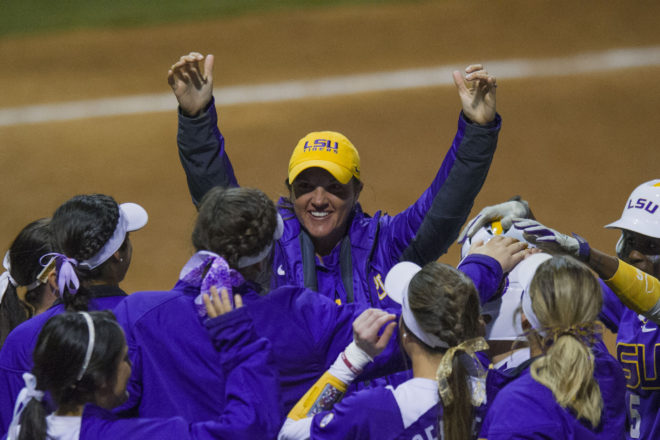
Get this FREE MiniCourse to help your athletes perform their best, overcome any obstacle, and stay focused under pressure.
In 1972 a plane carrying 45 people, including a Uruguayan rugby team and their families and friends, crashed into Andes mountains.
Twenty-nine people survived the crash. A few days later, an avalanche took 8 more lives when it flooded their makeshift shelter.
Search parties from three countries looked for the missing plane, but the search was called off after eight days. The survivors, having found a small transistor radio on the plane, heard that the search had been canceled.
Here’s an excerpt from the book Alive, describing this moment:
“The others who had clustered around Roy, upon hearing the news, began to sob and pray, all except Parrado, who looked calmly up the mountains which rose to the west.
Gustavo Nicolich came out of the plane and, seeing their faces, knew what they had heard…Nicolich climbed through the hole in the wall of suitcases and rugby shirts, crouched at the mouth of the dim tunnel, and looked at the mournful faces which were turned towards him.
‘Hey boys,’ he shouted, ‘there’s some good news! We just heard on the radio. They’ve called off the search.’
Inside the crowded plane, there was silence. As the hopelessness of their predicament enveloped them, they wept.
‘Why the hell is that good news?’ Paez shouted angrily at Nicolich.
‘Because it means,’ Nicolich said, ‘that we’re going to get out of here on our own.'”
72 days later, two of the passengers — Nando Parrado and Roberto Canessa — hiked through the Andes to civilization. The remaining 16 survivors were rescued thanks to their 10-day trek.
That’s an inspiring story, I’m sure no one will argue that. But you might be wondering… what does this have to do with you and the success of the athletes you coach?
In short: Everything.
The most powerful ten-word sentence in the English language…
If it is to be, it is up to me.
Seven, short, two-letter words—capable of massive impact. That sentence encapsulates response-ability.
Response-ability is taking ownership of your past, commanding your present, and taking charge of your future. It is being accountable for your perspective and controlling how you respond to adversity.
Too many people are negatively affected by outside influences they cannot control. They respond by becoming a victim of outside factors, rather than responding to adversity by holding themselves responsible for their actions.
As a coach or athlete, you see this play out all the time.
We blame the referees…
The refs were totally against us that game. That loss is on THEM, not us.
Or maybe it’s our teammates…
If so-and-so would just get out of my way and let me do my thing, we’d win
Or maybe the athletes on your team are blaming YOU?
Coach called a bad play. Coach should have put so-and-so in. Coach shouldn’t have called a timeout.
Sound familiar? Sure it does.
Now, think of how this could play out differently if everyone involved that you have influence over — that being YOU and those you coach — would embrace response-ability.
Rather than wasting time blaming others or other factors outside of your control, you and your team could focus on what is IN your control.
In the remainder of this article, you’ll learn how response-ability makes a difference in performance and how to begin disciplining your mind (and the minds of those you coach) to respond to events in order to produce productive outcomes.

How will you respond when things don’t go as planned?
Recall the story we opened this article with.
Take a step back in time with me, if you will, to the point of highest tension. The point where the survivors overhear on the radio that the search party has given up. That they’ve essentially been deemed dead.
If they would have responded differently — if they would have given in to the feeling that all hope was now lost… what would have happened?
They would have almost certainly all died.
But instead, at least one of the people trapped on that snowy mountainside seemed to know the power of a simple math equation that affects every single person on this earth, every single day (whether they realize it or not).
Event + Response = Outcome
In life, it’s not what happens to you, it is how you handle what happens to you. It is your ability to respond (RESPONSE-ability) that is going to determine your outcomes when adversity is thrown your way.
As a human being, YOU have the ability to respond to an event in the manner you deem appropriate. The response is your choice. We often do not have much control over the events in our lives, but we do control our responses.
This is an empowering notion because once you realize that you control half the equation, you recognize that you control half the outcome.
What a powerful concept to embrace in our coaching philosophy and teach to all of our athletes!
This is a foundational principle of mental conditioning that teaches us how to be responsible by accepting the Events, formulating Responses, and therefore, perceiving the Outcomes.
Everyone is capable of using this process to their benefit in sport and in life because we all have the ability to control our responses.
Next, I’ll outline a simple strategy you can use to help those you coach develop this crucial skill.
Train the pause
Remember Pavlov’s Dog Experiments taught in middle school science? Even if your memory is cloudy, all you need to recall is this: When there is a stimulus, there is a response.
Pavlov found that dogs could be conditioned to drool (response) when they heard a specific sound (stimulus) in the anticipation of food that would follow.
Humans are no different — except for our ability to become aware of our responses.
This recognition of how we respond is vital to mental performance mastery because we can train ourselves to pause in between stimulus and our response. Once we are aware of our innate responses to certain stimuli, we have the power to control and change them.
By teaching athletes to start becoming aware of how you respond to certain stimuli, they can gain awareness to catch the “pause” in between the event and their reaction and begin to CHOOSE how they react to particular events.
Those trained in discipline and response-ability face adverse stimuli with poise. They control their pause by taking a deep breath and responding in a manner conducive to the attainment of excellence.
Developing control over that pause is what separates those who stay in control under pressure and those who crack.
This is one way I help athletes I work with remember this: When the dog of adversity threatens with his dangerous jaws, control yourself with your human pause.
Applying this to your coaching
What we covered here today has the potential for HUGE impact… if practiced consistently and viewed as a skill that can be developed.
Know this: Many (perhaps even most) of your athletes are currently reacting to external stimulus out of emotion. In the heat of competition, it is easy for your mind to become clouded by adversity.
When officials make poor calls or the opposition seems to be catching lucky breaks, it’s easy to let your emotions get the best of your performance.
To help your athletes reach their true potential and achieve excellence in competition, you have to coach them on controlling their emotions by following the three rules of response-ability:
- Before you can control your performance, you must be in control of yourself.
- You have very little control of what goes on around you, but you have total control over how you choose to respond to it.
- What you are aware of you can control; what you are unaware of will control you.
As discussed above, the simplest, way to put this into practice is through teaching “the pause.”
Teach this principle from the very start of the season, and make it a regular part of your vocabulary during pregame talks.
Remind them of the equation: Event + Response = Outcome or E+R=O for short.
Encourage them to be on the lookout for adversity, ready to push back against an emotional response by pausing, quickly evaluating what they CAN control, and responding in the way that sets them up for success moving forward.
The tips and strategies we covered today will help you and everyone you coach master this crucial aspect of mental performance mastery.
YOUR NEXT MOVE: IF YOU WANT TO TAKE YOUR COACHING TO THE NEXT LEVEL, YOU NEED TO MASTER THE MENTAL SIDE OF PERFORMANCE
Knowing the what, when, and how of coaching mental performance—and trying to fit all of the pieces together on your own—can be burdensome.
That’s why I created the Mental Performance Mastery (MPM) Certification. Inside the MPM Certification, I’ll teach everything you need to add this crucial skill set to your coaching toolbox.
You will learn how to help your athletes and clients overcome mental barriers that trip them up and build the habits, mindset, and behaviors they need to be at their best when it matters most.
Not only will you develop a deep knowledge of the ten most valuable mental skills needed for peak mental performance, but you’ll also have a proven method for consistently and predictably developing these skills in those you coach.
The MPM Certification will open to new students for a limited time only twice a year (May and November). Join the free Insider’s List below to save $200 on the certification and be the first to know when it goes live.

